Pendjari
Pendjari is a conservation stronghold in West Africa, which forms part of a critically important triad of national parks and reserves where 90% of the West African lion population remains
Pendjari National Park forms part of the transnational W-Arly-Pendjari (WAP) Complex, spanning Benin, Burkina Faso, and Niger, which is the largest remaining intact ecosystem in West Africa. Covering 6 445 km2, Pendjari is the last refuge for the region’s elephant and some of the remaining critically endangered West African lion population.
Historically, the region has suffered political instability, lax management, insufficient resources, and growing human pressures, all of which threatened the remaining wildlife and livelihoods of communities dependent on Pendjari. However, in 2017, recognising the link between securing protected areas and sustainable development for the country, the Government of Benin invited African Parks to assume management of Pendjari.
In five years, this volatile landscape has become a haven for stable wildlife populations, uncontrolled resource use and rampant poaching are slowly being contained, and employment opportunities, education and health care have reached thousands of people. Despite militant activity spilling into Benin from Burkina Faso in 2022, park management and a dedicated team of rangers continue to work towards achieving safety within the park. A revised security strategy to ensure protection of Pendjari, its wildlife and people has been implemented and a sense of improved security is being felt as communities, park management and government work together to ensure stability. Despite its challenges, in one of the most precarious regions in Africa today, Pendjari is emerging as a place of hope and safety, where effective protected area management is encouraging people to continue protecting its fragile biodiversity to secure natural resources for the benefit of their own livelihoods and wellbeing.
Pendjari Highlights
- Across the W-Arly-Pendjari Complex, over 13,000 animals have been recorded, including an estimated 4,000 elephant, of which approximately 2,000 are in Pendjari, making it the largest population in the region.
- Pendjari is one of the largest remaining strongholds for West African lion in the region.
- Over 9,600 schoolchildren and 3,000 community members have received environmental education.
- Infrastructure investment, such as improved fencing and other mitigation measures, has accounted for a 70% drop in human-wildlife conflict (HWC).
- Socio-economic initiatives, such as beekeeping and soya production, are creating new opportunities for hundreds of households.
On the Horizon
Safeguarding one of the last great wilderness in West Africa and its iconic species remains a top priority. This will help to position the park as a local wildlife tourism destination, providing local people with income. Working with the communities is a priority, to mitigate human-wildlife conflict and provide alternative livelihoods to poaching and resource extraction. Help Pendjari ensure future prosperity for the region by donating to African Parks today.
Partners
In May 2017, the Government of Benin entered into a long-term agreement with African Parks to revitalise, rehabilitate and develop Pendjari. Pendjari is one of 45 flagship projects of the “Revealing Benin” national investment programme.
Partners